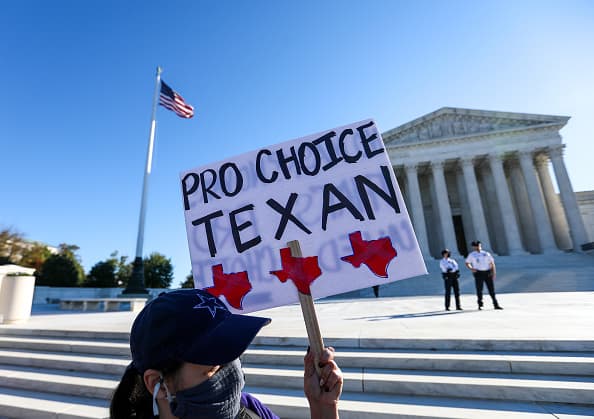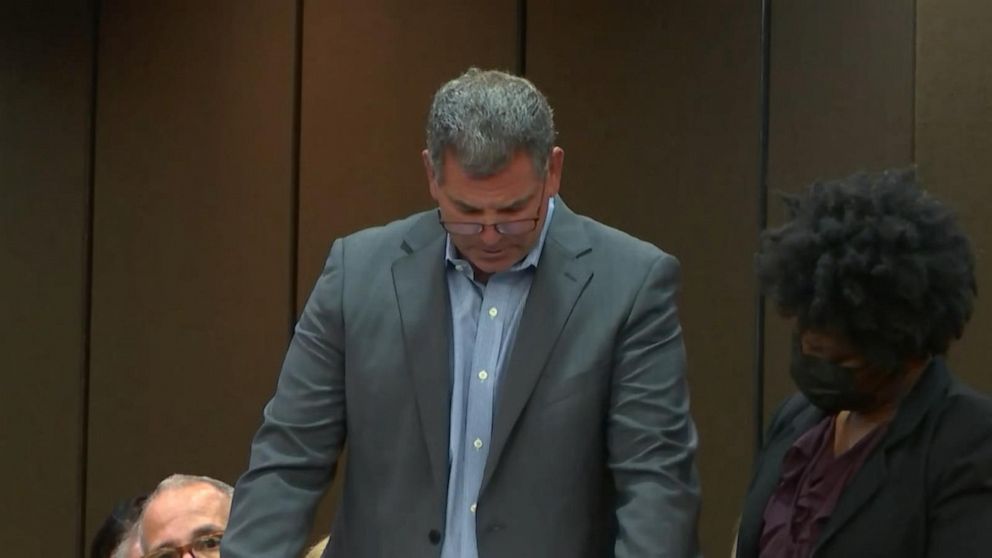
Pro-choice demonstrators protest outside of the US Supreme Court in Washington, DC on November 1, 2021.
Yasin Ozturk | Anadolu Agency | Getty Images
The Supreme Court on Friday ruled that a federal lawsuit by abortion providers challenging the legality of Texas’ new abortion ban can proceed before the law is enforced against anyone, at least against some currently named defendants.
However, the Supreme Court allowed the Texas law to remain in effect during that challenge, which will proceed in a lower federal court.
The law went into effect in September, but has not been enforced against any provider yet for terminating the pregnancy of a woman after the detection of a fetal heartbeat, usually around six weeks or so into gestation.
But the court in its 8-1 ruling allowing the suit to proceed noted that “other viable avenues to contest the law’s compliance with the Federal Constitution also may be possible and the Court does not prejudge the possibility.”
The decision came more than a week after the high court heard oral arguments in a separate case, Dobbs v. Jackson Women’s Health, in which the state of Mississippi asked the justices to overturn decades-old precedents supporting a constitutional right to abortion.
During those arguments, the court’s 6-3 conservative majority appeared ready to weaken that precedent over the strenuous objections of the three liberal justices.
“Will this institution survive the stench that this creates in the public perception that the Constitution and its reading are just political acts?” liberal Justice Sonia Sotomayor wondered aloud. “I don’t see how it is possible.”
The two cases challenging the Texas law, one from the Biden administration and another from a group of abortion providers and advocates, were effectively combined and placed on a fast-track schedule for briefing and argument.
The law, S.B. 8, bans most abortions in the state by barring the procedure after the detection of a fetal heartbeat, which occurs as early as the sixth week of gestation. At that point, many pregnant women are not yet aware of their pregnancies. The law includes an exemption for medical emergencies, but none for pregnancies resulting from rape or incest.
Roe v. Wade, the pivotal 1973 abortion ruling, protects the right to an abortion before fetal viability, which is generally around 24 weeks of pregnancy.
S.B. 8 explicitly excludes state officials from enforcing the law. Instead, it empowers private citizens to sue, for at least $10,000, anyone who “aids or abets” an abortion.
Opponents argued that that structure was crafted with the intent to thwart judicial review. Some of the Supreme Court’s conservatives appeared to agree during oral arguments on Nov. 1.
“There’s a loophole that’s been exploited here,” Justice Brett Kavanaugh said.
The abortion law, the most restrictive in the nation, became a flashpoint for Supreme Court controversy even before the latest term officially kicked off when a slim majority declined to block the ban from taking effect in September.
This is breaking news. Please check back for updates.

